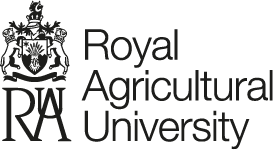Researching the role of the ‘Institutional Animateur’ at the Royal Agricultural University, Cirencester: The case of Farm491
Carr, Sarah, Hill, Inge, Smith, Robert and Manning, Louise (2021) Researching the role of the ‘Institutional Animateur’ at the Royal Agricultural University, Cirencester: The case of Farm491. In: ISBE Conference, 28th - 29th October 2021, City Hall, Cardiff. (Unpublished)
|
Text
ISBE Working paper Animateurship Carr et al..pdf - Accepted Version Available under License Creative Commons Attribution Non-commercial No Derivatives. Download (432kB) | Preview |
Abstract
Topic: In contemporary entrepreneurship literature there is growing interest in both rural 15 entrepreneurship and the emerging concept of the ‘Animateur’ in turning entrepreneurial ideas 16 into realities. Traditionally, the ‘Animateur’ or ‘Animator’ has been considered to be like the 17 entrepreneur, typically a lone individual, who works with and assists others to achieve an 18 entrepreneurial outcome. Animateurs assist and encourage budding entrepreneurs by providing 19 encouragement and experiential advice to those with an idea or vision, but do not have the 20 necessary experience, skills or confidence to ‘go it alone’. The developing model of 21 ‘Animateurial action’ differs from other forms of business support, because the animateurs are 22 not providing the actual solutions in a report for a set fee but are guiding the aspiring 23 entrepreneurs towards making the important decisions themselves on the path from ideation to 24 commercialisation. Building on existing studies, this case study examines the role of the 25 institutional animateur in driving an innovation ecosystem. Using narratives and examples 26 from Farm491, the AgriTech incubator, accelerator and innovation space based at the Royal 27 Agricultural University, Cirencester, UK, this scoping study expands the reach of the 28 theoretical concept of animateurs to consider their role in agri-technology adoption within the 29 land-based sector. 30 Context: Farm491 is a focal point for entrepreneurial activity that underpins the future of 31 farming and food systems and delivers on the requirements of developing the rural economy 32 (House of Lords, 2019). The Farm491 team consider 1) What do start-ups in the 33 AgriTech/agrifood space actually want and need? 2) What level of knowledge do ‘aspiring 34 entrepreneurs’ have about the AgriTech sector and terminology? 3) What is required to pull 35 together the right talent in the team to provide holistic business support; and 4) Assess the 36 animateurship offer to ensure it is realistic for start-ups and not overly extractive (Carr & Hill, 37 2021). The team offer (virtual) mentoring, face-to-face flexible learning opportunities, via 38 workshops and also access to a members’ only toolbox platform. As of early 2021, Farm491 39 had 72 active members (of which 32% are current RAU students or RAU alumni); they have 40 supported over 200 start-ups through membership and ERDF-funded workshops since starting, 41 helped them raise, approx. £33million in investment and have helped them hire 120 new 42 employees. Through the lens of animateurship, encompassing the role of the animateur and the 43 construct of the process of animation, research can highlight how rural enterprise support 44 contributes to business development, the levelling up agenda and supports the local and 45 national industrial strategy. 46 Applicability to the conference theme: This working paper is applicable to the conference theme as it considers the importance of the emerging concept of the animateur by providing illustrated examples of institution-based animateurship. It places emphasis on the practical aspects of institutional animateurship as well as informing the growing theoretical literature on how innovation ecosystems are positioned and then self-evolve. Aim: The aim of the research is to examine what practices and processes of animateurship are applicable in institutional business support contexts. This study builds upon a growing interest in novel forms and applications of entrepreneurial activity and knowledge generation. Methodology: Four sub-cases from successful entrepreneurial start-ups in regenerative agriculture, smart livestock farming, aquaculture and agronomy sectors are examined through an iterative comparative case analysis to provide novel insights into institutional animateurship. Contribution: The research makes two contributions. Firstly, from a theoretical perspective, it extends the concept of, and literature on, animateurship from the focus primarily on the individual to the positioning of collective animateurship. Secondly, the study enriches our understanding of animateurial practices in the under-researched rural context. Implications for practice: This research discusses in detail business support processes and pathways, offering practical insights for business support professionals. Research implications: This study has important implications for business support practice because it adds to a neglected dimension to the literature of business support and has the potential to change how we view the practices and processes of animateurship.
| Item Type: | Conference or Workshop Item (Paper) |
|---|---|
| Additional Information: | Inclusion of a paper within the ISBE proceedings does not restrict further publication. https://isbe.org.uk/isbe-2021/isbe-2021-author-guidelines/ |
| Keywords: | Animateur, rural entrepreneurship |
| Depositing User: | Users 12 not found. |
| Date Deposited: | 08 Nov 2021 13:39 |
| Last Modified: | 02 May 2025 09:12 |
| URI: | https://rau.repository.guildhe.ac.uk/id/eprint/16494 |
Actions (login required)
 |
Edit Item |

